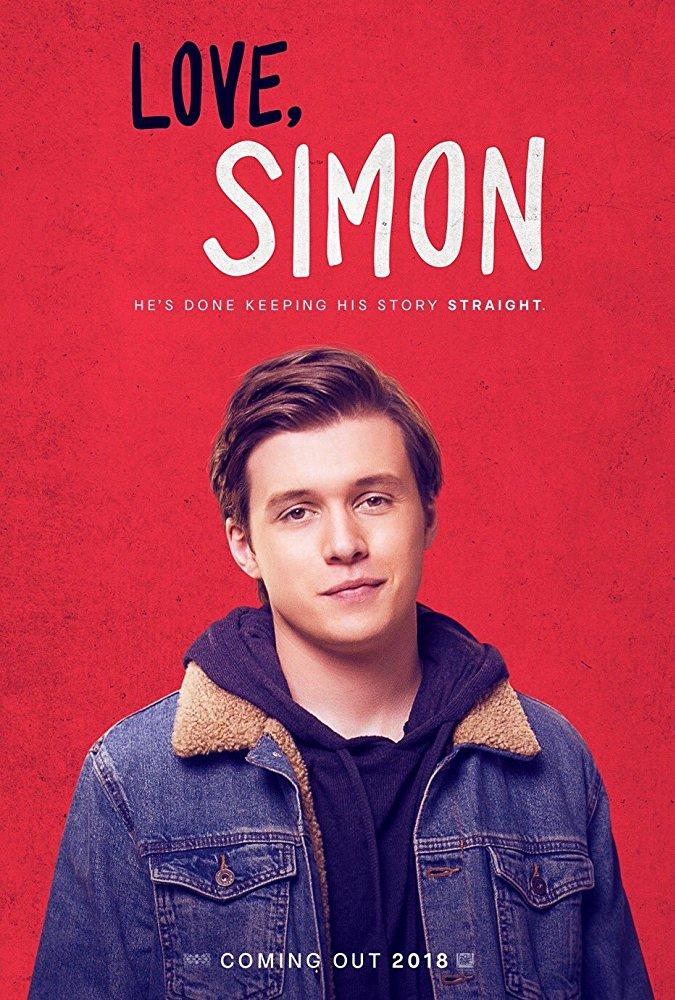“The Breakfast Club,” “Clueless,” and “Juno” are classic coming-of-age romantic comedy films that have influenced mainstream media throughout the years. Despite their generational gaps, these films have one overarching theme in common; the storytelling and point of views of the main characters are dominantly heterosexual in nature. This, whether indirectly or not, led to a misrepresentation of the LGBTQ community. “Love, Simon” shows viewers and critics alike that the film industry is taking a step in the right direction by being more open to telling the stories of this community.
Film has normalized young love and romance topics so much that it’s almost tired. Girls as young as 8 fantasize about meeting their true love and all the “happily ever after” fluff that follows. Media reinforces the minds of young girls, and boys, that marriage and starting a family are the keys to attaining the perfect life and becoming your best self. This idea is so ingrained in our brains that it labels anyone who doesn’t fit into the cookie-cutter mold created by our society as different or weird. Whoever society brands with this label is now viewed in a negative light, influencing others similar to hide in conformity.
Perhaps this is why Simon Spier (Nick Robinson), and a majority of the LGBTQ community, feel as if society deems being gay as unacceptable. Of course, media and film are not the only realms of society to blame for this mindset; however, people, and kids especially, learn what is to be believed as “normal” or “ideal” by what and who they see on-screen.
Based off of the book “Simon vs. the Homo Sapiens Agenda,” written by Becky Albertalli, “Love, Simon” breaks these stereotypical barriers of film and openly discusses what it is truly like for teens to explore and come to terms with their sexuality. It particularly embodies the struggles of being gay, focusing on how, when or even if they should “come out.” For Simon, these choices were quickly ripped away when someone threatens to expose the virtual love affair between him and his dreamboat boy, who goes by the pseudonym Blue, to the whole school. In those email chains lie not only flirty banter between Simon and Blue, but also secrets they both have kept close to chest. Navigating life as a not-so-openly gay teen is already tough, but add blackmail, juggling old and new friendships and potentially losing your chance to run off into the sunset with your adorable mystery boy, and life is a ferris wheel of emotions.
Despite the overall positive attitude towards gay culture the book and film emit, “Love, Simon” may not be as cutting-edge as one may have hoped. Simon lives a pretty normal life as a typical “rom-com” teen with a family he actually likes and friends who “drink too much iced coffee while gorging on carbs.” Take away the gay 16-year-old main character and what we are left with is another cheesy, yet endearing, romantic comedy.
Even though “Love, Simon” is the start of a rather progressive moment, some may not necessarily agree that Robinson, who identifies as straight, should play such an important role for the gay community. When questioned about it by Ellen DeGeneres, Robinson opened up and shared that during filming, his brother came out to him. He’s proud the film stimulates a conversation that, in some ways, may not otherwise exist.
Behind a powerful movie is an even more powerful soundtrack. According to Billboard, the “Love, Simon” soundtrack debuted in the top 40 on the Billboard 200 Chart and number four on the Alternative Albums chart. With break out hits like “Love Lies” by Khalid, featuring Normani, and a heartwarming track like “Alfie’s Song (Not So Typical Love Song)” by Bleachers, the soundtrack perfectly blended all the emotions one felt as a viewer or someone who has lived a journey similar to Simon’s.
In the end, Simon got the great love story he deserved and inspired others to get theirs.



































